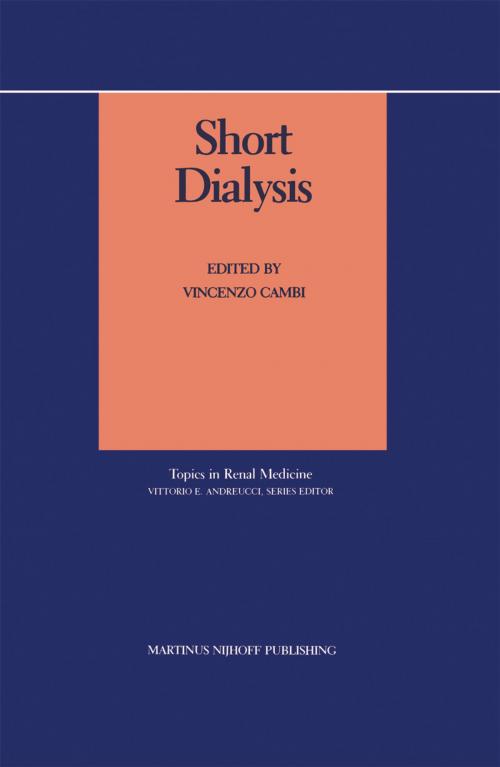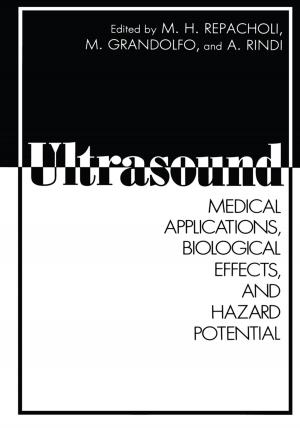| Author: | ISBN: | 9781461320456 | |
| Publisher: | Springer US | Publication: | December 6, 2012 |
| Imprint: | Springer | Language: | English |
| Author: | |
| ISBN: | 9781461320456 |
| Publisher: | Springer US |
| Publication: | December 6, 2012 |
| Imprint: | Springer |
| Language: | English |
Vittorio E. Andreucci of keeping alive patients in terminal chronic Initially created with the purpose renal failure, dialysis has undergone improvements in methodology, and its final goal has become complete health rehabilitation and optimization of the quality of life of chronic dialysis patients. To achieve this, many investigators have attempted to increase dialysis efficiency and at the same time shorten dialysis time. Their main concern was, obviously, patient safety: the Latin proverb 'primum non nocere' is still valid all over the world. Thus, when clinical observations of the first patients on regular dialysis therapy suggested an inverse relationship between duration of dialysis sessions and severity of peripheral neuropathy, long and frequent dialysis sessions were considered the only way to prevent the catastrophic consequences of nerve damage and underdialysis syndrome. It was then, in 1971, when dialysis duration was 8- 12 hours per session, that Vincenzo Cambi started a 'short dialysis' trial, i. e. , 4 hours 3 times weekly or 3 hours every second day. For the first time, dialysis was shortened from 24-36 hours weekly to 10. 5-12 hours weekly [1, 2]. In 1971 I was still at the Parma University Hospital. We had both just returned from the United States, and Dr. Cambi was responsible for the dia lysis unit.
Vittorio E. Andreucci of keeping alive patients in terminal chronic Initially created with the purpose renal failure, dialysis has undergone improvements in methodology, and its final goal has become complete health rehabilitation and optimization of the quality of life of chronic dialysis patients. To achieve this, many investigators have attempted to increase dialysis efficiency and at the same time shorten dialysis time. Their main concern was, obviously, patient safety: the Latin proverb 'primum non nocere' is still valid all over the world. Thus, when clinical observations of the first patients on regular dialysis therapy suggested an inverse relationship between duration of dialysis sessions and severity of peripheral neuropathy, long and frequent dialysis sessions were considered the only way to prevent the catastrophic consequences of nerve damage and underdialysis syndrome. It was then, in 1971, when dialysis duration was 8- 12 hours per session, that Vincenzo Cambi started a 'short dialysis' trial, i. e. , 4 hours 3 times weekly or 3 hours every second day. For the first time, dialysis was shortened from 24-36 hours weekly to 10. 5-12 hours weekly [1, 2]. In 1971 I was still at the Parma University Hospital. We had both just returned from the United States, and Dr. Cambi was responsible for the dia lysis unit.















